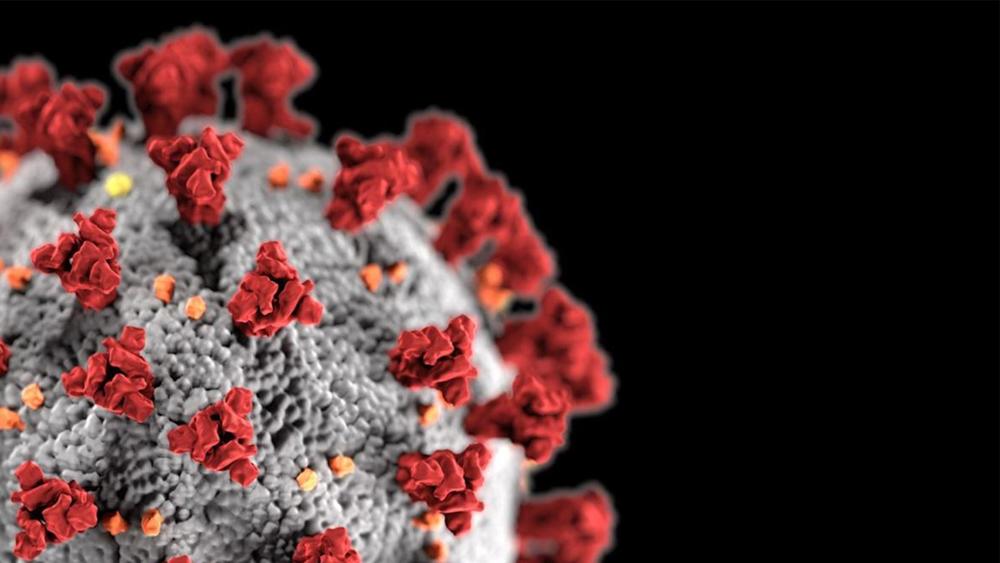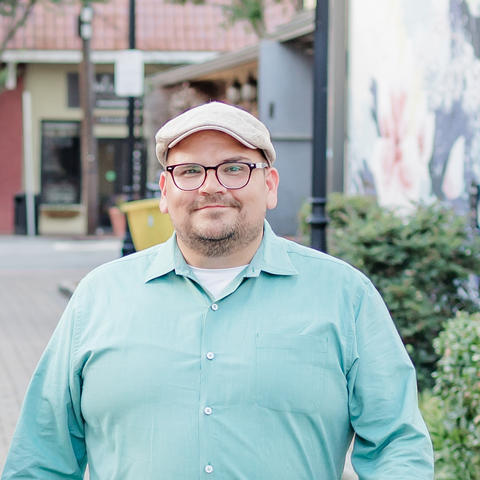
Section Branding
Header Content
Georgia Today: New bill for electric vehicles; Mental health directions; New COVID-19 variant
Primary Content
On the Tuesday May 9 edition of Georgia Today: A new law changes how to pay for EV charging; Georgia is now one of the states allowing people to write directions for their future mental health care; And we'll talk to a doctor from Emory University about the newest COVID-19 variant to reach the United States.

Peter Biello: Welcome to the Georgia Today podcast from GPB News. Today is Tuesday, May 9. I'm Peter Biello. On today's episode, a new law changes how to pay for EV charging. Georgia is now one of the states allowing people to write directions for their future mental health care. And we'll talk to a doctor from Emory University about the newest COVID 19 variant to reach the United States. These stories and more are coming up on this edition of Georgia Today.
Story 1:
Peter Biello: Georgia is now one of 25 states allowing people to write directions for their future mental health care just in case they experience a behavioral health crisis. GPB's Ellen Eldridge reports.
Ellen Eldridge: Psychiatric advance directives or PADs were authorized by law in Georgia last year. A PAD allow someone to record their preferences now for future mental health care and even name someone to make treatment decisions in the event the author loses behavioral control — like a medical alert bracelet explicitly for mental health. Ellyn Jaeger is with the Georgia Office of Advocacy.
Ellyn Jaeger: When you lose that control, everybody stops listening. The PAD keeps your control. The PAD says exactly what you would like to say and articulates it in a way that you would like to say it without you having to do it at that moment.
Ellen Eldridge: PADs can be shared with local hospitals, providers and police departments, so the author's preference for care is clear. For GPB News, I'm Ellen Eldridge.
Story 2:
Peter Biello: Gov. Brian Kemp has signed two transportation bills. One increases the weight limit for trucks carrying agricultural products and timber on Georgia roads. The other bill changes the way electric vehicle owners charge their cars. Instead of paying by the length of time a customer uses an EV charger, EV owners will pay by the kilowatt hour. That's a federal requirement Georgia needs to meet to be eligible for funds earmarked by Congress to build charging stations across the state.

Story 3:
Peter Biello: State tax collections slipped significantly in April. Gov. Brian Kemp's office said today that revenues decreased by more than $800 million, or about 16% compared to April of last year. It's the second straight month of revenue decline, reversing a boom that started with the end of COVID-19 restrictions in 2020. Much of the slip is attributed to first-year implementation of a new law that changes the way certain corporations file their taxes.
Story 4:
Peter Biello: Workers at Georgia-based school bus manufacturer Bluebird Corporation are set to vote this week on whether to join the United Steelworkers Union. The company of more than 2,400 workers is the largest employer in Middle Georgia's Peach County. Former employee Renaldo Cooper says workers are asking for better working conditions.
Renaldo Cooper: When I was at Bluebird, I didn't have the work, home and family balance that I have now at Graphic Packaging where I'm actually employed now. It's a union facility, and I like I say, I'll just tell the difference that I experience.
Peter Biello: Company officials have declined to comment on specific allegations but deny any wrongdoing.

Story 5:
Peter Biello: Over the next year, adults and children covered by Medicaid during the pandemic emergency will lose their coverage unless they prove they're still eligible. As GPB's Sofi Gratas reports, many people are confused by or even unaware of the coming change.
Sofi Gratas: 2.7 million people in the state will have their Medicaid coverage eligibility checked. That's why a $5 million campaign funded by state health agencies is directing people to verify their coverage through the website Georgia Gateway. But advocacy organizations fear the message isn't reaching everyone. Lucy Dagneau runs state and local campaigns for the American Cancer Society Cancer Action Network, one of several groups helping educate people about Medicaid redeterminations. Dagneau says outside of metro Atlanta...
Lucy Dagneau: ...they are definitely not hearing as much about this effort. And so for some of them, seeing those materials for the first time, whether they're handed out, they're pretty skeptical.
Sofi Gratas: State agencies say people will begin seeing lapses in Medicaid coverage in June. For GPB News, I'm Sofi Gratas in Macon.

Story 6:
Peter Biello: A federal agency has agreed to study whether dredging a Georgia shipping channel in the spring and summer would threaten sea turtles nesting on nearby beaches. Conservation group 100 Miles moved to dismiss its lawsuit against the Army Corps of Engineers after the agency announced Friday that it would voluntarily conduct the study. Environmentalists and the Army Corps have battled since 2021 over the agency's plan to end a certain policy. That policy prohibited dredging accumulated sand and mud from harbors in Georgia and the Carolinas during sea turtle nesting season.
Story 7:
Peter Biello: The National Trust for Historic Preservation has named an African-American cemetery just north of Columbus as one of the country's 11 most endangered places. The group listed Pierce Chapel African Cemetery in Harris County, in part because of ongoing deterioration aggravated by road and utility work. Yamona Pierce founded the Hamilton Hood Foundation to protect the cemetery where her great, great, great grandparents are buried.
Yamonda Pierce: Upon us visiting Pierce Chapel African Cemetery, what I and my family envisioned certainly was not reflective of a final resting place or a beloved family member. This is bittersweet. We are happy to work with the National Trust and that they have recognized Pierce Chapel.
Peter Biello: Pierce says she wants utility companies to address the harm they've done with their work. The 2-acre cemetery is the final resting place for an estimated 500 people, including those enslaved by nearby plantations.

Story 8:
Peter Biello: There's a new COVID-19 variant in the United States. NPR's Ayesha Rascoe spoke with Dr. Carlos del Rio of Emory University about what we need to know regarding this omicron sub-variant.
Ayesha Rascoe: It's been a while since we've talked variants, and there's a new one. Arcturus, scientifically known as SBB.1.16, is a sub-variant of omicron and was first found in India this January and was declared a variant of interest by the World Health Organization last month. Carlos del Rio teaches medicine at Emory University and he joins us now. Thank you for coming back to the program.
Carlos del Rio: Delighted to be with you.
Ayesha Rascoe: So let's start with the basics here. How is arcturus different from other variants and sub-variants that we've seen in the past?
Carlos del Rio: You know, this strain is being monitored very carefully just because it's rapidly growing and now represents about 50% of strains isolated in the United States. And what's interesting about this variant is it has certain mutations that make it more transmissible. It's about 1.2 times more infectious, more transmissible than prior variants. So what we're going to see is, is over the next several months and into the summer, this will become the the dominant variant in the United States — and it doesn't produce more severe disease, and we need to say that. But it is more contagious without doubt.
Ayesha Rascoe: You said that it doesn't produce more serious illness. Are there any symptoms associated with arcturus that may be different from omicron and other variants?
Carlos del Rio: Symptoms that we see with this variant include very high fever, cough, cold-like symptoms. But there's something that has come back: During omicron, the loss of sense of taste and smell kind of disappeared. And now this is again a common symptom. And the other symptom they're seeing, and it's primarily being seen in children is conjunctivitis, is pinkeye. So if you have a kid and the kid has pinkeye, you need to think about about COVID as being one of the possible diagnosis.
Ayesha Rascoe: So nearly 70% of Americans are now vaccinated and COVID deaths are down by 95% since January 2021. The Biden administration says it's ending the public health emergency later this week. Is arcturus a threat to those very promising statistics and to the end of the public health emergency?
Carlos del Rio: That's a very complicated question, but let me try to to break it down for your audience. No.1, we have a lot of immunity and we call this a immunological wall. The challenge, though, is that CDC recently changed the recommendations and said in order to be up to date in your immunizations, you need to have received the Bivalent booster. And only 16% of the U.S. population has received their bivalent booster. And furthermore, the people that I worry the most about are those over the age of 65, and among those over the age of 65, only 46% have received one bivalent booster and virtually nobody has received a second bivalent booster, which they should. You know, the Biden administration is ending, as you say, the public health emergency on May 11. What's going to happen on May 12? The availability and access to vaccines and boosters for free continues to exist as long as there is a supply. Nothing is changing. How about home testing? What's going to happen? Well, something is changing at home testing. Those over-the-counter tests are not going to be for free anymore. And depending on your insurance, your insurance may pay for it, may not pay for it. But but this is an issue that, you know, I tell people, you still have a few days, go to the government site, get your four COVID test that you can get before May 11 and keep them at home. And the last one is treatments. Again, nothing is changing as long as there's treatments available — and there's still plenty of treatments available — if you get a prescription to your doctor and May 12, you go to a drugstore to get, you know, your Paxlovid or any other medication for COVID, it's still going to be available for free.
Ayesha Rascoe: So looking ahead, what should people be doing to keep themselves safe? You know, especially folks who are at a higher risk of getting very sick from COVID?
Carlos del Rio: Well, I think I tell people that they need to do the following things. Number one is you need to be up to date on your vaccinations, which means if you have not received a bivalent booster, you need to get one. And if you're over the age of 65 and you already receive one more than four months ago, you need to get a second one. Number two, order your free COVID tests and keep them at home. If you develop symptoms, test yourself. And if you test positive for COVID and you are at high risk if you're over the age of 60, over the age of 65, go ahead and start therapy because, you know, treatment with Paxlovid makes a huge difference. And I remind people that treatment is not because your symptoms are severe. It's actually because your risk of developing severe disease is high. And that's primarily determined by your age, also by your degree of immunosuppression. So you are very immunosuppressed individual that that is clearly an issue. And the third thing you need to do is to stay alert and to realize, you know, you may put yourself at risk. You may go to a meeting, you may go to an event. And that's a decision that we need to personally take. Am I capable to get infected or not? The risk evaluation is very different between a 25-year-old otherwise healthy individual and an 80-year-old, you know, individual with severe lung disease. They may think very differently about how risky it is to to go to a wedding, for example, or go to a big event. But in general, you know, people are assuming their normal lives. And I think what we need to do is stay ahead in our immunization, stay up to date and make sure that if we get diagnosed and we can start on therapy when appropriate.
Ayesha Rascoe: Carlos del Rio is a distinguished professor of medicine in the Division of Infectious Diseases at Emory University's School of Medicine. Thank you so much for joining us.
Carlos del Rio: Delighted to be with you.
Peter Biello: And that's all we've got for this edition of Georgia Today. But thank you so much for tuning in. I am so happy to be back here with you on Georgia Today, after spending a few days with family visiting from out of town, including my niece who turned 7 on Monday. Happy birthday again, Amelia. If you would like to learn more about the stories you heard on today's podcast, visit GPB.org/news. If you have not yet subscribed to this podcast, now's the time to do it because we will be with you tomorrow with all the top stories from the Peach State tomorrow afternoon. If you've got feedback on this podcast, let us know. We'd love to hear from you by email. We also take story ideas, too. The email address is Georgiatoday@gpb.org. And if you like this podcast, leave a review because that'll help other folks find it. I'm Peter Biello. Thanks again for listening. We'll see you tomorrow.
___
GPB's Georgia Today newsletter hits your inbox on Tuesdays, Wednesdays and Thursdays with top stories from around the state featuring news, politics and more. Subscribe here.




